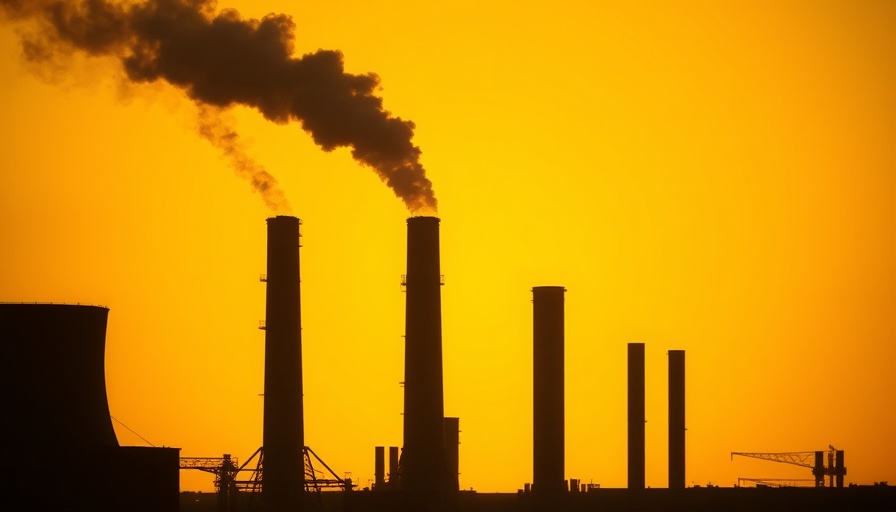
EPA's Controversial Move: What It Means for Climate Regulations
The U.S. Environmental Protection Agency (EPA) is poised to reverse crucial regulations underpinning climate efforts by withdrawing its scientific conclusion that greenhouse gas emissions jeopardize public health. This significant regulatory shift could have sweeping implications for various sectors, affecting vehicle standards, industrial emissions, and energy regulations. According to sources familiar with the matter, this move which involves re-evaluating the ‘endangerment finding,’ could ease the path for the Agency to eliminate existing emissions controls, a concern for many environmental advocates.
Understanding the Endangerment Finding and Its Impact
The endangerment finding, established under former President Obama, determined that greenhouse gas emissions were harmful to public health and safety. This allowed for comprehensive federal regulations that aimed at mitigating climate change effects. The proposal to roll back this finding not only threatens to dismantle existing laws but also raises eyebrows regarding the EPA's commitment to guarding public health against environmental threats.
The Implications of the International Court’s Findings
Adding to the urgency of this situation, the International Court of Justice recently emphasized that greenhouse gas emissions constitute an ‘existential threat’ to global society. This development highlights the need for collective international actions toward reducing emissions. The EPA’s potential withdrawal of the endangerment finding could create a rift in the U.S. commitment to collaborate on critical global emission targets.
Legal Perspectives and the Role of the Courts
Legal analysts assert that dismantling the scientific basis for the endangerment finding would be a daunting task, given the overwhelming evidence attributing climate change to human activities. The landmark Massachusetts vs. EPA Supreme Court ruling underscores the authority of the EPA to regulate emissions based on scientific findings, reiterating that any dismantling of these findings would likely regain legal challenges.
Public Health Concerns and Environmental Advocacy
Environmental lawyers and advocacy groups have raised alarm over this potential regulatory rollback. Many experts characterize the move as an abdication of the EPA’s statutory responsibilities to protect public health, describing it as a denial of science-based findings that could lead to considerable public health risks.
Call to Action: Stay Informed and Get Involved
Now more than ever, it’s vital for communities to advocate for responsible environmental practices and regulations. Engaging in local initiatives aimed at environmental conservation can create ripples of change, enhancing public health and ecological integrity. For those interested in supporting families through unforeseen events, consider learning about final expense insurance options that can protect against financial burdens during life transitions. The community’s health and security depend on informed choices and proactive engagement.
 Add Row
Add Row  Add
Add 




Write A Comment